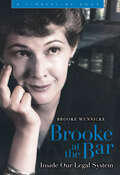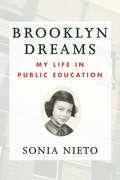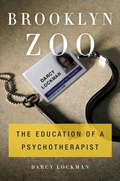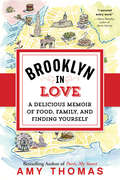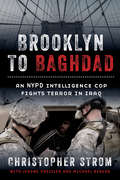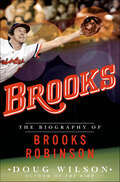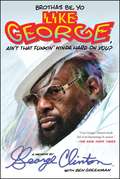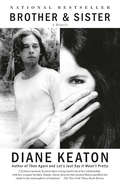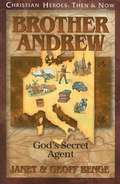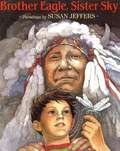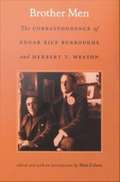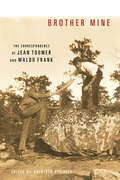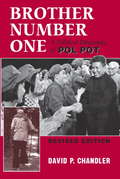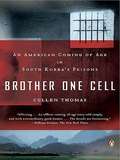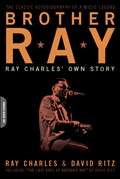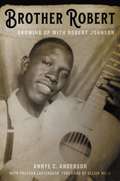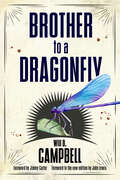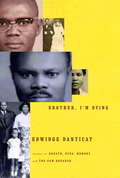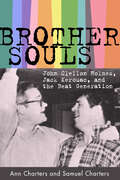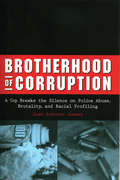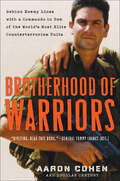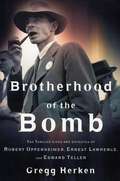- Table View
- List View
Brooke Shields Is Not Allowed to Get Old: Thoughts on Aging as a Woman
by Brooke ShieldsINSTANT NEW YORK TIMES BESTSELLERFrom generational icon Brooke Shields comes an intimate and empowering exploration of aging that flips the script on the idea of what it means for a woman to grow olderBrooke Shields has spent a lifetime in the public eye. Growing up as a child actor and model, her every feature was scrutinized, her every decision judged. Today Brooke faces a different kind of scrutiny: that of being a “woman of a certain age.”And yet, for Brooke, the passage of time has brought freedom. At fifty-nine, she feels more comfortable in her skin, more empowered and confident than she did decades ago in those famous Calvin Kleins. Now, in Brooke Shields Is Not Allowed to Get Old, she’s changing the narrative about women and aging.This is an era, insists Brooke, when women are reclaiming agency and power, not receding into the shadows. These are the years when we get to decide how we want to live—when we get to write our own stories.With remarkable candor, Brooke bares all, painting a vibrant and optimistic picture of being a woman in the prime of her life, while dismantling the myths that have, for too long, dimmed that perception. Sharing her own life experiences with humor and humility, and weaving together research and reporting, Brooke takes aim at the systemic factors that contribute to age-related bias.By turns inspiring, moving, and galvanizing, Brooke’s honesty and vulnerability will resonate with women everywhere, and spark a new conversation about the power and promise of midlife.
Brooke at the Bar: Inside Our Legal System (Timberline Books)
by Brooke WunnickeBrooke at the Bar is a candid, lively, and sometimes humorous autobiography by Brooke Wunnicke, the first woman to be a trial and appellate attorney in Wyoming and who went on to become a legal legend in Colorado. In conversational writing, Brooke provides insights from a lawyer, mentor, and educator. She advocates that, while not perfect, the United States has the world’s best legal system and that all citizens need to understand and protect their rights, freedoms, and responsibilities. Brooke shares vignettes of her early life—California in the Great Depression, college at Stanford, law school in Colorado during World War II, and the 1946 opening of her Cheyenne law office, a precedent for women in law. She vividly describes memorable and amusing experiences with clients, witnesses, lawyers, juries, and judges and explains some significant cases. She recounts important and dynamic events from her twelve years as Denver’s chief appellate deputy district attorney, an era during which she was an inestimable mentor to many young lawyers who became prominent in the private and public sectors. Brooke passionately believed “the law has been and will continue to be civilization’s hope.” In her book’s final part, she demystifies many legal terms and procedures and describes the parts of a civil jury trial—including information for jurors and witnesses—and provides an enthusiastic and clear refresher on the US Constitution and Bill of Rights. Brooke at the Bar is a unique and historically important contribution that will be of interest to general readers, scholars, and students interested in US law, political science, government, women’s history, twentieth-century western history, civil rights, and legal communities, including those in Wyoming and Colorado, where Brooke was “at the Bar.”
Brooklyn Dreams: My Life in Public Education
by Sonia NietoIn Brooklyn Dreams, Sonia Nieto—one of the leading authors and teachers in the field of multicultural education—looks back on her formative experiences as a student, activist, and educator, and shows how they reflect and illuminate the themes of her life’s work. Nieto offers a poignant account of her childhood and the complexities of navigating the boundaries between the rich culture of her working-class Puerto Rican family and the world of school. Brooklyn Dreams also chronicles her experiences as a fledgling teacher at the first bilingual public school in New York City—in the midst of the Ocean Hill-Brownsville strike—and the heady days of activism during the founding of the bilingual education program at Brooklyn College and later in establishing and running an alternative multicultural school in Amherst, Massachusetts. Along the way, Nieto reflects on the ideas and individuals who influenced her work, from Jonathan Kozol to Paulo Freire, and talks frankly about the limits of activism, the failures of school reform, and the joys and challenges of working with preservice and in-service educators to deepen their appreciation of diversity.Brooklyn Dreams is an intimate account of an educator’s life lived with zest, generosity, and warmth.
Brooklyn Dreams: My Life in Public Education
by Sonia NietoIn Brooklyn Dreams, Sonia Nieto—one of the leading authors and teachers in the field of multicultural education—looks back on her formative experiences as a student, activist, and educator, and shows how they reflect and illuminate the themes of her life&’s work. Nieto offers a poignant account of her childhood and the complexities of navigating the boundaries between the rich culture of her working-class Puerto Rican family and the world of school. Brooklyn Dreams also chronicles her experiences as a fledgling teacher at the first bilingual public school in New York City—in the midst of the Ocean Hill-Brownsville strike—and the heady days of activism during the founding of the bilingual education program at Brooklyn College and later in establishing and running an alternative multicultural school in Amherst, Massachusetts. Along the way, Nieto reflects on the ideas and individuals who influenced her work, from Jonathan Kozol to Paulo Freire, and talks frankly about the limits of activism, the failures of school reform, and the joys and challenges of working with preservice and in-service educators to deepen their appreciation of diversity.Brooklyn Dreams is an intimate account of an educator&’s life lived with zest, generosity, and warmth.
Brooklyn Zoo
by Darcy LockmanA compelling memoir of a psychotherapist's clinical and personal education amid chaos and dysfunction that delivers an emotional impact to rival Susan Sheehan's classic Is There No Place on Earth for Me? Seven years after her college graduation, Darcy Lockman abandoned a career in magazine journalism to become a psychologist. After four years in classrooms, she spent her final training year at the Kings County Hospital, an aging public institution on the outskirts of Brooklyn. When she started, little did she know that the hospital's behavioral health department--the infamous G Building, where the Son of Sam serial killer David Berkowitz and the rapper Ol' Dirty Bastard once resided--was on the cusp of its darkest era yet, one that culminated in the death of a patient in a psychiatric emergency room described by the New York Post as a "Dickensian nightmare." Brooklyn Zoo unfolds amid the constant drama and disorder of the G Building. Lockman rotates through four departments, each of which presents new challenges and haunting cases. She works with forensic psychologists to evaluate offenders for fitness to stand trial--almost all of them with pathos-filled histories and little hope of rehabilitation. The thorny politics of the psych ER compound her anxiety about working with its volatile patients, but under the wing of a charismatic if brusque mentor she gains a deeper insight into her new profession as well as into her own strengths and limitations. As she moves to the inpatient ward and then psychiatric consultation liaison, Lockman's overstretched supervisors and the institutional preference for pills over therapy are persistent obstacles. But they eventually present a young clinician with the opportunity to reexamine everything she believes and to come out stronger on the other side. Lockman's frank portrayal of her fledgling role in a warped system is a professional coming-of-age story that will resonate with anyone who has fought to develop career mastery in a demanding environment. A stark portrait of the struggling public mental-health-care system, Brooklyn Zoo is also an homage to the doctors who remain committed to their patients in spite of institutional failures and to the patients who strive to get better with their help. And it is an inspiring first-hand account by a narrator who triumphs over self-doubt to believe in the rightness and efficacy of her chosen profession.
Brooklyn in Love: A Delicious Memoir of Food, Family, and Finding Yourself
by Amy ThomasFrom the author of Paris, My Sweet comes the story of a modern woman embracing love, motherhood, and all the courses life has to offer,On an island where finding love can be just as hard as finding a dinner reservation on a Friday night, Amy Thomas never imagined a family would fit into her lifestyle. So when Amy finds herself turning forty, moving to Brooklyn, and making way for a baby with a new man in her life, she realizes that starting over may be her biggest opportunity yet.But how do you balance staying out all night dancing with staying up all night soothing a baby? Can a lifelong city girl trade in spontaneity for domesticity? Set amid the backdrop of Brooklyn and Manhattan's foodie scenes, Amy sets out to make her second act even sweeter than the first.
Brooklyn to Baghdad: An NYPD Intelligence Cop Fights Terror in Iraq
by Jerome Preisler Michael Benson Christopher StromBrooklyn to Baghdad is the true story of a retired NYPD intelligence sergeant applying his street-cop tactics and interrogation skills against a lethal insurgency that had infected Iraq. A group of retired Special Forces soldiers and law enforcement experts came together to form the counterinsurgency group codenamed "Phoenix Team." Exposing the corruption of both the Iraqi and US governments, the team faced serious setbacks and challenges. Brooklyn to Baghdad shows the effectiveness of Phoenix Team, their ability to process forensic evidence and human intelligence gleaned through interrogations at the point of capture to provide direct targeting for follow-on missions. This memoir also illustrates the politics of Washington, DC, and the US Army in the war-fighting effort, which continually hampered complete success while simultaneously preserving career aspirations. Throughout are many humorous and emotional anecdotes that reveal the men behind the missions and the toll the theater of war takes on real human lives
Brooks: The Biography of Brooks Robinson
by Doug WilsonThe first complete biography of the Baltimore Orioles' Hall of Fame baseman Brooks Robinson, the greatest defensive third baseman of all time.Finalist for the 2014 Casey Award!Selected by the National Baseball Hall of Fame for the 2014 author's seriesBrooks Robinson is one of baseball's most transcendent and revered players. He won a record sixteen straight Gold Gloves at third base, led one of the best teams of the era, and is often cited as the greatest fielder in baseball history. Credited with almost single-handedly winning the 1970 World Series, this MVP was immortalized in a Normal Rockwell painting. A wholesome player and role model, Brooks honored the game of baseball not only with his play but with his class and character off the field.Author of The Bird: The Life and Legacy of Mark Fidrych, Doug Wilson returns to baseball's Golden Age to detail the birth of a new franchise through the man who came to symbolize it as one of baseball's most beloved players. Through numerous interviews with people from every part of the legendary player's life, Wilson reveals never-before-reported information to illuminate Brooks's remarkable skill and warm personality.Brooks takes readers back to an era when players fought for low-paying yearly contracts, spanning the turbulent 60s and 70s and into the dawning of the free agent era. He was elected to the MLB All-Century Team and as president of the MLB Players Alumni, Brooks continues to influence today's baseball players.In the climate of astronomic salaries, steroids, off-field troubles, and heroes who let down their fans, Brooks reminds baseball fans of the honor and glory at the heart of America's favorite pastime.
Brothas Be, Yo Like George, Ain't That Funkin' Kinda Hard On You?: A Memoir
by George Clinton**ONE OF THE BEST MUSIC BOOKS OF THE YEAR BY ROLLING STONE**The captivating memoir from &“the emperor of intergalactic funk&” (NPR) and most influential pop artists of our time—known for over forty R&B hit singles—George Clinton of Parliament-Funkadelic.George Clinton began his musical career in New Jersey, where his obsession with doo-wop and R&B led to a barbershop quartet—literally, as Clinton and his friends also styled hair in the local shop—the way kids often got their musical start in the &’50s. But how many kids like that ended up playing to tens of thousands of rabid fans alongside a diaper-clad guitarist? How many of them commissioned a spaceship and landed it onstage during concerts? How many put their stamp on four decades of pop music, from the mind-expanding sixties to the hip-hop-dominated nineties and beyond? One of them. That&’s how many. How George Clinton got from barbershop quartet to funk music megastar is a story for the ages. As a high school student, George traveled to New York City, where he absorbed all the trends in pop music, from traditional rhythm and blues to Motown, the Beatles, the Stones, and psychedelic rock, not to mention the formative funk of James Brown and Sly Stone. By the dawn of the seventies, he had emerged as the leader of a wildly creative musical movement composed mainly of two bands—Parliament and Funkadelic. And by the bicentennial, Clinton and his P-Funk empire were dominating the soul charts as well as the pop charts. He was an artistic visionary, visual icon, merry prankster, absurdist philosopher, and savvy businessmen, all rolled into one. He was like no one else in pop music, before or since. Written with wit, humor, and candor, this memoir provides tremendous insight into America&’s music industry as forever changed by Clinton&’s massive talent. This is a story of a beloved global icon who dedicated himself to spreading the gospel of funk music.
Brother & Sister: A Memoir
by Diane KeatonFrom the beloved film star and best-selling author of Then Again--a heartfelt memoir about Diane Keaton's relationship with her younger brother, and a poignant exploration of the divergent paths siblings' lives can take. <p><p> When they were children in the suburbs of Los Angeles in the 1950s, Diane Keaton and her younger brother, Randy, were best friends and companions: they shared stories at night in their bunk beds; they swam, laughed, dressed up for Halloween. Their mother captured their American-dream childhoods in her diaries, and on camera. But as they grew up, Randy became troubled, then reclusive. By the time he reached adulthood, he was divorced, an alcoholic, a man who couldn't hold on to full-time work--his life a world away from his sister's, and from the rest of their family. <p> Now Diane is delving into the nuances of their shared, and separate, pasts to confront the difficult question of why and how Randy ended up living his life on "the other side of normal." In beautiful and fearless prose that's intertwined with photographs, journal entries, letters, and poetry--many of them Randy's own writing and art--this insightful memoir contemplates the inner workings of a family, the ties that hold it together, and the special bond between siblings even when they are pulled far apart. Here is a story about love and responsibility: about how, when we choose to reach out to the people we feel closest to--in moments of difficulty and loss--surprising things can happen. A story with universal echoes, Brother & Sister speaks across generations to families whose lives have been touched by the fragility and "otherness" of loved ones--and to brothers and sisters everywhere. <p><b>A New York Times Bestseller</b>
Brother Andrew: God's Secret Agent (Christian Heroes, Then & Now)
by Janet Benge Geoff BengeAs a boy, the intrepid Andrew Van Der Bijl joined the Dutch Resistance against the Nazi occupation. As a young man, he fought eagerly in the Dutch East Indies. Redeemed by God, the Dutchman became a daring messenger of hope, smuggling Scripture through closed borders and equipping persecuted Christians behind the Iron Curtain. Today Brother Andrew and the ministry of Open Doors continue to shine the light of Christ in the world's darkest places.
Brother Eagle, Sister Sky: A Message from Chief Seattle
by Chief Seattle Susan JeffersFrom the Book jacket: How can you buy the sky? How can you own the rain and the wind? So began the moving words attributed to a great American Indian chief over one hundred years ago. They are words that eloquently and poetically captured the central belief of Native Americans: that this earth and every creature on it is sacred. It is these words and this belief that have inspired what has been truly a labor of love for Susan Jeffers; her most extraordinary paintings illuminate the words and world vision possessed by Native Americans. Brother Eagle, Sister Sky will haunt all who see it with its portrayal of what has been lost in our world, and is an important message to people young and old to care for and preserve the environment. CHIEF SEATTLE lived from approximately 1790 to 1866, in the Pacific Northwest region of what is now the United States. He was a chief of the Suquamish and the Duwamish Indians and was present at treaty negotiations that took place with the dominant white settlers in the 1850s. It is at one of these negotiations that Chief Seattle delivered a speech in his native tongue, a speech which has since- in a variety of forms-served as the basis of ecological movements around the world and from which Brother Eagle, Sister Sky is drawn. Susan Jeffers is internationally acclaimed for her exquisite paintings, and the illustrator of numerous picture books for Dial-all of which brilliantly portray nature. Ms. Jeffers' paintings are beautifully described.
Brother Men: The Correspondence of Edgar Rice Burroughs and Herbert T. Weston
by Matt CohenBrother Men is the first published collection of private letters of Edgar Rice Burroughs, the phenomenally successful author of adventure, fantasy, and science fiction tales, including the Tarzan series. The correspondence presented here is Burroughs's decades-long exchange with Herbert T. Weston, the maternal great-grandfather of this volume's editor, Matt Cohen. The trove of correspondence Cohen discovered unexpectedly during a visit home includes hundreds of items--letters, photographs, telegrams, postcards, and illustrations--spanning from 1903 to 1945. Since Weston kept carbon copies of his own letters, the material documents a lifelong friendship that had begun in the 1890s, when the two men met in military school. In these letters, Burroughs and Weston discuss their experiences of family, work, war, disease and health, sports, and new technology over a period spanning two world wars, the Great Depression, and widespread political change. Their exchanges provide a window into the personal writings of the legendary creator of Tarzan and reveal Burroughs's ideas about race, nation, and what it meant to be a man in early-twentieth-century America. The Burroughs-Weston letters trace a fascinating personal and business relationship that evolved as the two men and their wives embarked on joint capital ventures, traveled frequently, and navigated the difficult waters of child-rearing, divorce, and aging. Brother Men includes never-before-published images, annotations, and a critical introduction in which Cohen explores the significance of the sustained, emotional male friendship evident in the letters. Rich with insights related to visual culture and media technologies, consumerism, the history of the family, the history of authorship and readership, and the development of the West, these letters make it clear that Tarzan was only one small part of Edgar Rice Burroughs's broad engagement with modern culture.
Brother Mine: The Correspondence of Jean Toomer and Waldo Frank
by Jean Toomer Waldo FrankThe friendship of Jean Toomer and Waldo Frank was one of the most emotionally intense, racially complicated, and aesthetically significant relationships in the history of American literary modernism. Waldo Frank was an established white writer who advised and assisted the younger African American Jean Toomer as he pursued a literary career. They met in 1920, began corresponding regularly in 1922, and were estranged by the end of 1923, the same year that Toomer published his ambitiously modernist debut novel, Cane. While individual letters between Frank and Toomer have been published separately on occasion, they have always been presented out of context. This volume presents for the first time their entire correspondence in chronological order, comprising 121 letters ranging from 200 to 800 words each. Kathleen Pfeiffer annotates and introduces the letters, framing the correspondence and explaining the literary and historical allusions in the letters themselves. Reading like an epistolary novel, Brother Mine captures the sheer emotional force of the story that unfolds in these letters: two men discover an extraordinary friendship, and their intellectual and emotional intimacy takes shape before our eyes. This unprecedented collection preserves the raw honesty of their exchanges, together with the developing drama of their ambition, their disappointments, their assessment of their world, and ultimately, the betrayal that ended the friendship.
Brother Number One
by David P ChandlerIn the tragic recent history of Cambodia--a past scarred by a long occupation by Vietnamese forces and by the preceding three-year reign of terror by the brutal Khmer Rouge--no figure looms larger or more ominously than that of Pol Pot. As secretary of the Central Committee of the Communist Party of Kampuchea (CPK) since 1962 and as prime minister of Democratic Kampuchea (DK), he has been widely blamed for trying to destroy Cambodian society. By implementing policies whose effects were genocidal, he oversaw the deaths of more than one million of his nation’s people. The political career of Saloth Sar, better known by his nom de guerre Pol Pot, forms a critical but largely inaccessible portion of twentieth-century Cambodian history. What we know about his life is sketchy: a comfortable childhood, three years of study in France, and a short career as a schoolteacher preceded several years--spent mostly in hiding--as a guerrilla and the commander of the victorious army in Cambodia’s civil war. His career reached a climax when he and his associates, coming to power, attempted to transform their country along lines more radical than any attempted by a modern regime. Driven into hiding in 1979 by invading Vietnamese forces, Pol Pot maintained his leadership of a Khmer Rouge guerrilla army in exile, remaining a power and a threat. In this political biography, David P. Chandler throws light on the shadowy figure of Pol Pot. Basing his study on interviews and on a wide range of sources in English, Cambodian, and French, the author illuminates the ideas and behavior of this enigmatic man and his entourage against the background of post-World War II events, providing a key to understanding this horrific, pivotal period of Cambodian history. In this revised edition, Chandler provides new information on the state of Cambodia and the Khmer Rouge following the death of Pol Pot in 1997.
Brother Number One: A Political Biography of Pol Pot
by David P. ChandlerRevised to take new data into account, this biography by historian Chandler describes the transformation of the schoolteacher Saloth Sar into the revolutionary leader Pol Pot, recounting as much as is known about his personal and political life but not pretending that the elusive leader is ever truly within the biographer's grasp. Annotation c. Book News, Inc. , Portland, OR (booknews. com)
Brother One Cell
by Cullen ThomasCullen Thomas was just like the thousands of other American kids who travel abroad after college. He was hungry for meaning and excitement beyond a nine-to-five routine, so he set off for Seoul, South Korea, to teach English and look for adventure. <P><P>What he got was a three-and-a- half-year drug-crime sentence in South Korea's prisons, where the physical toll of life in a cell was coupled with the mental anguish of maintaining sanity in a world that couldn't have been more foreign. <P><P>This is Thomas's unvarnished account of his eye-opening, ultimately life-affirming experience. <P><P>Brother One Cellis part cautionary tale, part prison memoir, and part insightful travelogue that will appeal to a wide readership, from concerned parents to armchair adventurers.
Brother Ray: Ray Charles' Own Story
by Ray Charles David Ritz<P>Ray Charles (1930-2004) led one of the most extraordinary lives of any popular musician. In Brother Ray, he tells his story in an inimitable and unsparing voice, from the chronicle of his musical development to his heroin addiction to his tangled romantic life. <P>Overcoming poverty, blindness, the loss of his parents, and the pervasive racism of the era, Ray Charles was acclaimed worldwide as a genius by the age of thirty-two. By combining the influences of gospel, jazz, blues, and country music, he invented, almost single-handedly, what became known as soul. And throughout a career spanning more than a half century, Ray Charles remained in complete control of his life and his music, allowing nobody to tell him what he could and couldn't do. <P>As the Chicago Sun-Times put it,Brother Ray is "candid, explicit, sometimes embarrassing, often hilarious, always warm, touching and deeply human-just like his music. "
Brother Robert: Growing Up with Robert Johnson
by Annye C. AndersonThis intimate memoir by blues legend Robert Johnson's stepsister includes new details about his family, music, influences, tragic death, and musical afterlife.Though only twenty-seven years young and relatively unknown at the time of his tragic death in 1938, Robert Johnson's enduring recordings have solidified his status as a progenitor of the Delta Blues style. And yet, while his music has retained the steadfast devotion of modern listeners, much remains unknown about the man who penned and played these timeless tunes. Few people alive today actually remember what Johnson was really like, and those who do have largely upheld their silence -- until now.In Brother Robert, nonagenarian Annye Anderson sheds new light on a real-life figure largely obscured by his own legend: her kind and incredibly talented stepbrother, Robert Johnson. This book chronicles Johnson's unconventional path to stardom -- from the harrowing story behind his illegitimate birth, to his first strum of the guitar on Anderson's father's knee, to the genre-defining recordings that would one day secure his legacy.Along the way, Anderson not only shares personal anecdotes, but also colorful recollections of Johnson passed down by members of their family -- the people who knew him best. She also outlines the contours of Johnson's working life in Memphis, never-before-disclosed details about his romantic history, and all of his favorite things, from foods and entertainers to brands of tobacco and pomade. Together, these stories don't just bring the mythologized Johnson back down to earth; they preserve both his memory and his integrity.For decades, Anderson and her family have ignored the tall tales of Johnson "selling his soul to the devil" and the speculative to fictionalized accounts of his life that passed for biography. Brother Robert is here to set the record straight. Featuring a foreword by Elijah Wald and a Q&A with Anderson, Lauterbach, Wald, and Peter Guralnick, this book paints a vivid portrait of an elusive figure who forever changed the musical landscape as we know it.
Brother to a Dragonfly (Banner Books)
by Will D. CampbellIn Brother to a Dragonfly, Will D. Campbell (1924–2013) writes about his life growing up poor in Amite County, Mississippi, during the 1930s alongside his older brother, Joe. Though they grew up in a close-knit family and cared for each other, the two went on to lead very different lives. After serving together in World War II, Will became a highly educated Baptist minister who later became a major figure in the early years of the civil rights movement, and Joe became a pharmacist who developed a substance abuse problem that ultimately took his life. Brother to a Dragonfly also serves as a historical record. Though Will's love and dedication to his brother are the primary story, interwoven throughout the narrative is the story of the Jim Crow South and the civil rights movement. Will is present through many of the most pivotal moments in history—he was one of four people who escorted black students integrating the Little Rock public schools; he was the only white person present at the founding of the SCLC; he helped CORE and SNCC Freedom Riders integrate interstate bus travel; he joined Dr. Martin Luther King Jr.'s campaign of boycotts, sit-ins, and marches in Birmingham; and he was at the Lorraine Motel the night Dr. King was assassinated. Will's accomplishments, however, never take the spotlight from his brother, and as his relationship with Joe evolves, so does Will's faith. Featuring a new foreword by Congressman John Lewis, this book brings back to print the combined lives of Will Campbell—Will the brother and Will the preacher.
Brother, I'm Dying (Vintage Contemporaries)
by Edwidge DanticatFrom the best-selling author of "The Dew Breaker," a major work of nonfiction: a powerfully moving family story that centers around the men closest to her heart--her father, Mira, and his older brother, Joseph. From the age of four, Edwidge Danticat came to think of her uncle Joseph, a charismatic pastor, as her "second father," when she was placed in his care after her parents left Haiti for a better life in America. Listening to his sermons, sharing coconut-flavored ices on their walks through town, roaming through the house that held together many members of a colorful extended family, Edwidge grew profoundly attached to Joseph. He was the man who "knew all the verses for love. " And so she experiences a jumble of emotions when, at twelve, she joins her parents in New York City. She is at last reunited with her two youngest brothers, and with her mother and father, whom she has struggled to remember. But she must also leave behind Joseph and the only home she's ever known. Edwidge tells of making a new life in a new country while fearing for the safety of those still in Haiti as the political situation deteriorates. But "Brother I'm Dying" soon becomes a terrifying tale of good people caught up in events beyond their control. Late in 2004, his life threatened by an angry mob, forced to flee his church, the frail, eighty-one-year-old Joseph makes his way to Miami, where he thinks he will be safe. Instead, he is detained by U. S. Customs, held by the Department of Homeland Security, brutally imprisoned, and dead within days. It was a story that made headlines around the world. His brother, Mira, will soon join him in death, but not before he holds hope in his arms: Edwidge's firstborn, who will bear his name--and the family's stories, both joyous and tragic--into the next generation. Told with tremendous feeling, this is a true-life epic on an intimate scale: a deeply affecting story of home and family--of two men's lives and deaths, and of a daughter's great love for them both.
Brother-Souls: John Clellon Holmes, Jack Kerouac, and the Beat Generation
by Ann Charters Samuel ChartersJohn Clellon Holmes met Jack Kerouac on a hot New York City weekend in 1948, and until the end of Kerouac’s life they were—in Holmes’s words—“Brother Souls.” Both were neophyte novelists, hungry for literary fame but just as hungry to find a new way of responding to their experiences in a postwar American society that for them had lost its direction. Late one night as they sat talking, Kerouac spontaneously created the term “Beat Generation” to describe this new attitude they felt stirring around them. Brother-Souls: John Clellon Holmes, Jack Kerouac, and the Beat Generation is the remarkable chronicle of this cornerstone friendship and the life of John Clellon Holmes. From 1948 to 1951, when Kerouac’s wanderings took him back to New York, he and Holmes met almost daily. Struggling to find a form for the novel he intended to write, Kerouac climbed the stairs to the apartment in midtown Manhattan where Holmes lived with his wife to read the pages of Holmes’s manuscript for the novel Go as they left the typewriter. With the pages of Holmes’s final chapter still in his mind, he was at last able to crack his own writing dilemma. In a burst of creation in April 1951, he drew all the materials he had been gathering into the scroll manuscript of On the Road. Biographer Ann Charters was close to John Clellon Holmes for more than a decade. At his death in 1988 she was one of a handful of scholars allowed access to the voluminous archive of letters, journals, and manuscripts Holmes had been keeping for twenty-five years. In that mass of material waited an untold story. These two ambitious writers, Holmes and Kerouac, shared days and nights arguing over what writing should be, wandering from one explosive party to the next, and hanging on the new sounds of bebop. Through the pages of Holmes’s journals, often written the morning after the events they recount, Charters discovered and mined an unparalleled trove describing the seminal figures of the Beat Generation: Holmes, Kerouac, Neal Cassady, Allen Ginsberg, William Burroughs, Gregory Corso, and their friends and lovers.
Brotherhood of Corruption: A Cop Breaks the Silence on Police Abuse, Brutality, and Racial Profiling
by Juan Antonio JuarezA former Chicago cop exposes shocking truths about the abuses of power within the city's police department in this memoir of violence, drugs, and men with badges. Juarez becomes a police officer because he wants to make a difference in gang-infested neighborhoods; but, as this book reveals, he ends up a corrupt member of the most powerful gang of all--the Chicago police force. Juarez shares the horrific indiscretions he witnessed during his seven years of service, from the sexually predatory officer, X, who routinely stops beautiful women for made-up traffic offenses and flirts with domestic violence victims, to sadistic Locallo, known on the streets as Locoman, who routinely stops gang members and beats them senseless. Working as a narcotics officer, Juarez begins to join his fellow officers in crossing the line between cop and criminal, as he takes advantage of his position and also becomes a participant in a system of racial profiling legitimized by the war on drugs. Ultimately, as Juarez discusses, his conscience gets the better of him and he tries to reform, only to be brought down by his own excesses. From the perspective of an insider, he tells of widespread abuses of power, random acts of brutality, and the code of silence that keeps law enforcers untouchable.
Brotherhood of Warriors: Behind Enemy Lines with a Commando in One of the World's Most Elite Counterterrorism Units
by Douglas Century Aaron CohenIn this memoir, a Canadian-American Jewish man recounts his training and service with Sayeret Duvdevan, an elite Israel Defense Forces special ops unit.At the age of 18, Aaron Cohen left Beverly Hills to prove himself in the crucible of the armed forces. He was determined to be a part of Israel’s most elite security cadre, akin to the American Green Berets and Navy SEALs. After fifteen months of grueling training designed to break down each individual man and to rebuild him as a warrior, Cohen was offered the only post a non-Israeli can hold in the special forces. In 1996 he joined a top-secret, highly controversial unit that dispatches operatives disguised as Arabs into the Palestinian-controlled West Bank to abduct terrorist leaders and bring them to Israel for interrogation and trial.Between 1996 and 1998, Aaron Cohen would learn Hebrew and Arabic; become an expert in urban counterterror warfare, the martial art of Krav Maga, and undercover operations; and participate in dozens of life-or-death missions. He would infiltrate a Hamas wedding to seize a wanted terrorist and pose as an American journalist to set a trap for one of the financiers behind the Dizengoff Massacre, taking him down in a brutal, hand-to-hand struggle. A propulsive, gripping read, Cohen’s story is a rare, fly-on-the-wall view into the shadowy world of “black ops” that redefines invincible strength, true danger, and inviolable security.
Brotherhood of the Bomb: The Tangled Lives and Loyalties of Robert Oppenheimer, Ernest Lawrence and Edward Teller
by Gregg HerkenThe lives and interactions of Lawrence, Oppenheimer and Teller, who invented the atomic bomb.

